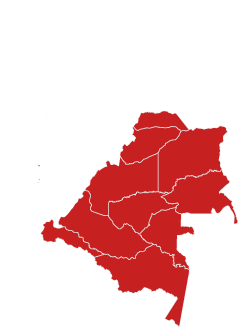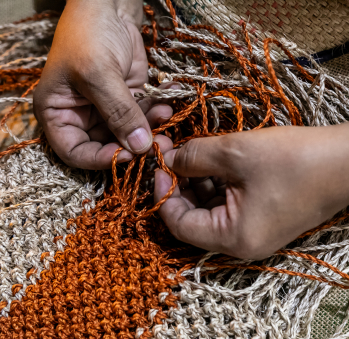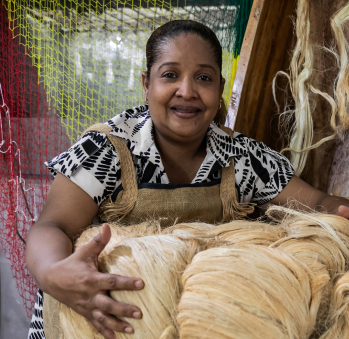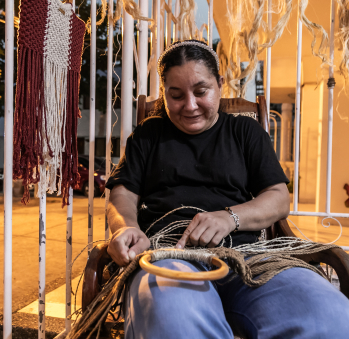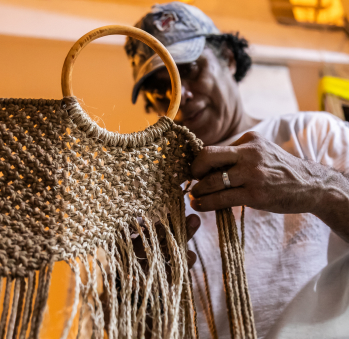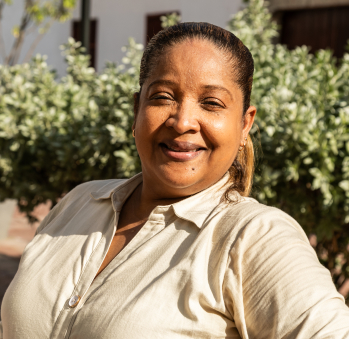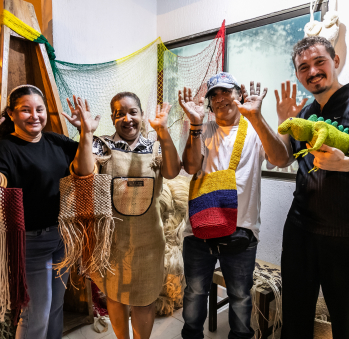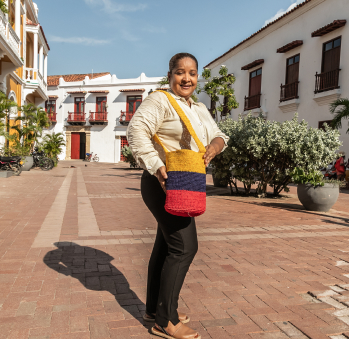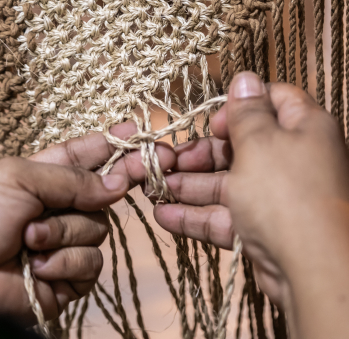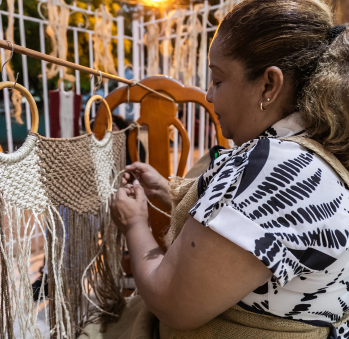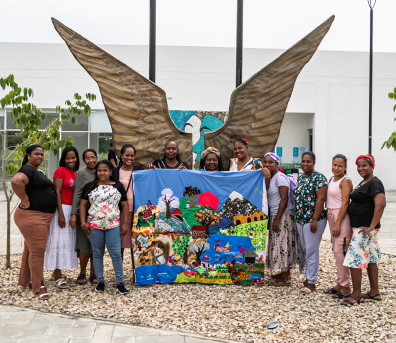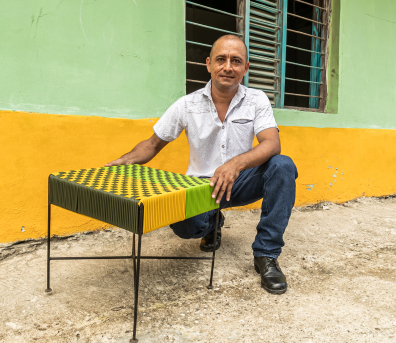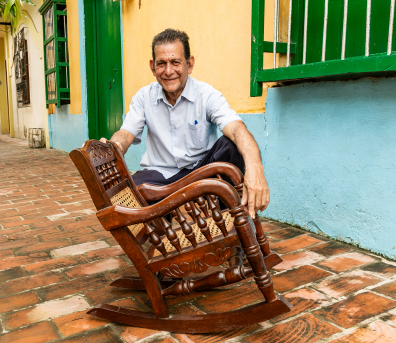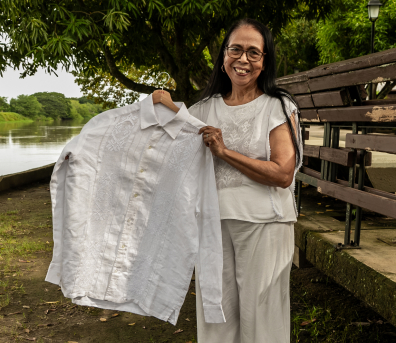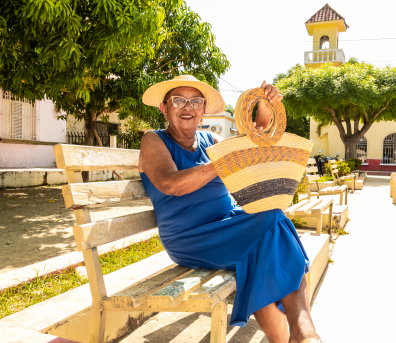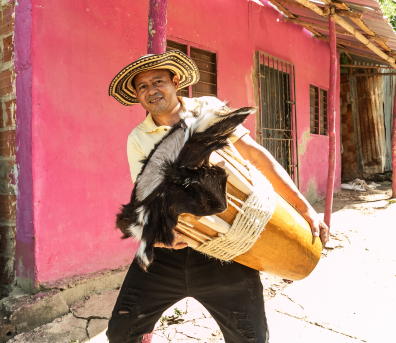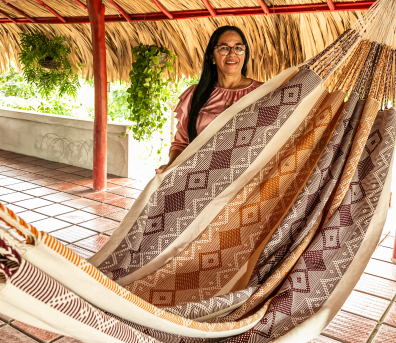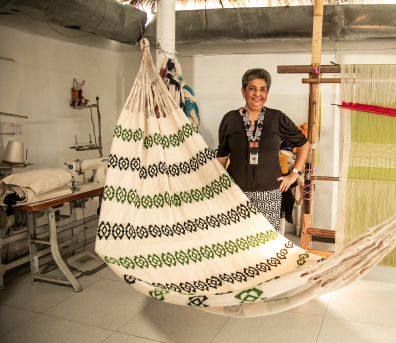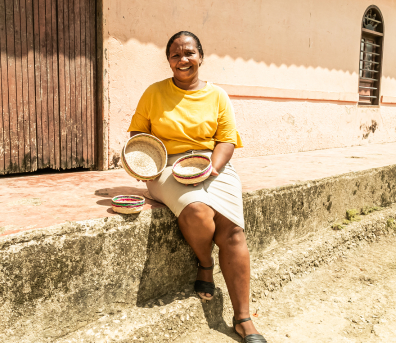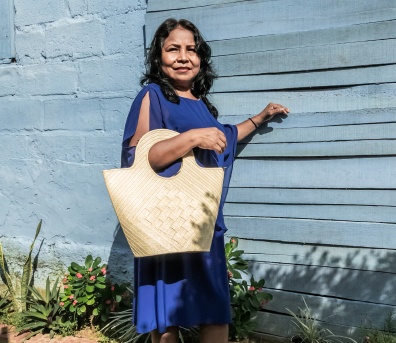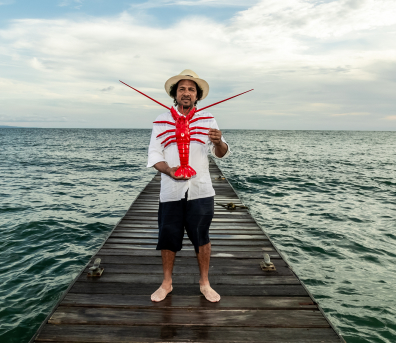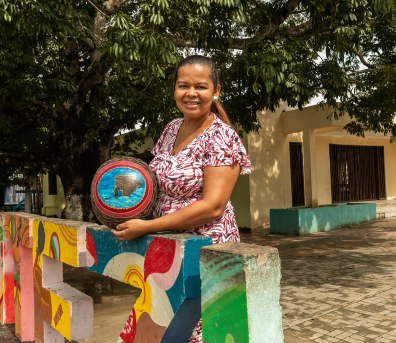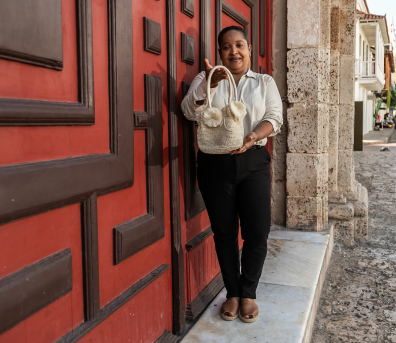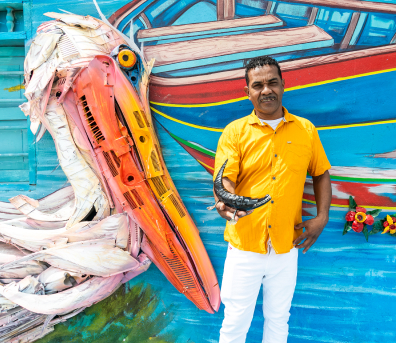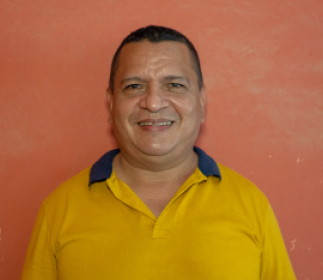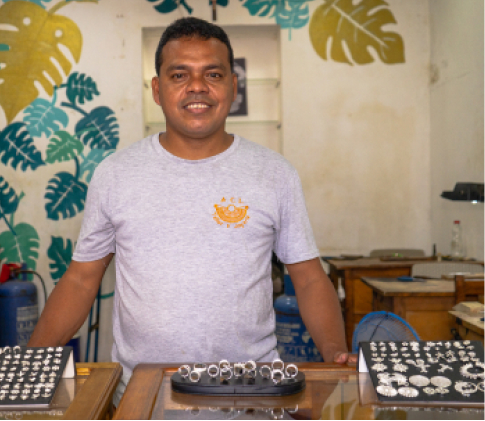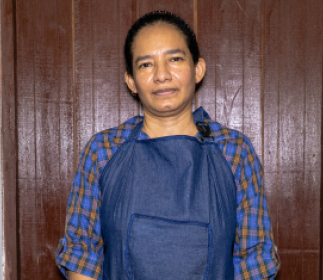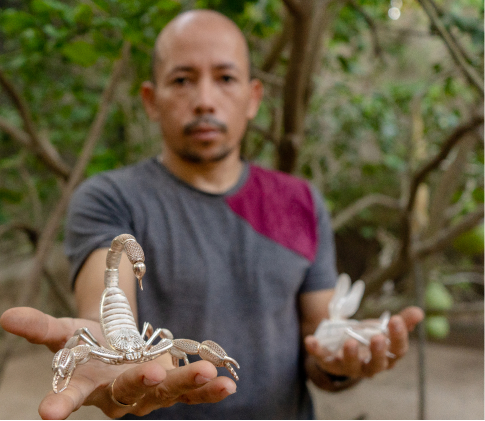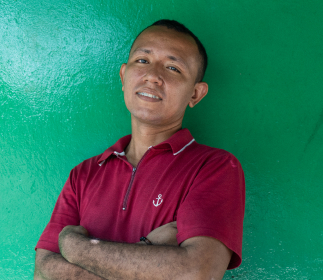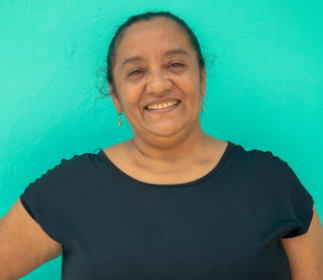Indhyra Morales de la Rosa
Workshop: Indhy Luna
Craft: Weaving
Trail: Bolívar Route
Location: Cartagena, Bolívar
Indhyra Morales de la Rosa speaks with deep affection about the place where she was born, southern Bolívar, which she refers to as the heart of Colombia, due to its proximity to the Santanderes, Antioquia, the sea, and the capital, as well as its abundant flora and fauna. She talks about the fique plants that grew alongside her in her family’s backyard and how naturally her grandparents would cut them and turn them into threads, just as they would pull yucca and pumpkin from the earth. Her mother’s family, Justa de la Rosa Soto, descends from the ancient Guane weavers of the fique plant, which is why Indhyra learned to make her own backpacks so naturally, and developed the respect for the plant that was passed down to her. She also inherited her love for the water of the Magdalena River, which provided the fish for their atarraya nets and for carving canoes. It wasn’t just one or two people, it was many, scattered across the municipality of Cantagallo and its surrounding townships. She recalls her uncles for their education and the respect they showed others—a principle that would become deeply embedded in her heart, one that would serve her well when her life took a drastic turn: forced displacement.
The mourning has not been easy. She has had to slowly find the words to talk about everything that happened when guerrillas, military forces, and later paramilitaries arrived in her region. The people, those who had nothing to do with the conflict, suffered the consequences of these encounters. Her family had to leave Cantagallo and move to Guamo, where they were relocated, only for the violence to find them again, forcing them to move once more, this time to Turbaco, where Indhyra now lives.
She arrived with little, but with the invaluable legacy of her family. She began to make herself known at the Victims’ Unit and teach what she knew. At first, she had to make do with the little thread she had and whatever she could find to weave. She invested her humanitarian aid into materials and spent her time working and teaching, with the patience and respect she had learned as a child, to everyone who came to her to learn. Her hard work paid off, because with the sixty families that are currently involved the association, spread across southern Bolívar and the north, they were able to secure a building to serve as their operations center in Cartagena, as well as a plot of land in Cachenche through a land restitution programme. Indhyra’s efforts, her work, and persistence have been justly recognized: she has received awards from ProColombia, the Ministry of Environment, the Ministry of Tourism, Industry, and Trade, and has been honored for the sustainability of her project. In addition to the countless fique pieces they weave, which include shells and corals that remind Indhyra of her love for the water, they have also created products from leather scraps and cotton waste.
As she reflects on all she has accomplished, the feeling of satisfaction inevitably becomes bittersweet, because Indhyra knows how much she misses her homeland, hearing the birds singing at exact hours, and being in contact with the lush nature that raised her. That is why she remains firmly committed to her dream: to show people what her land is like, to be able to return. She knows it will require patience.
Craft
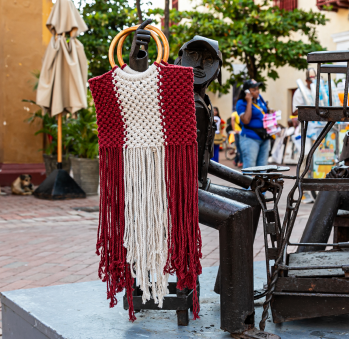
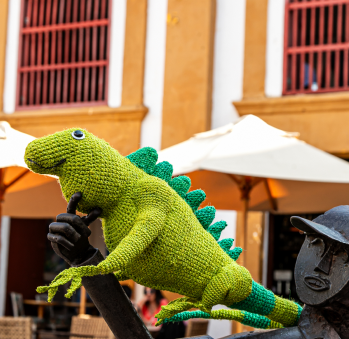
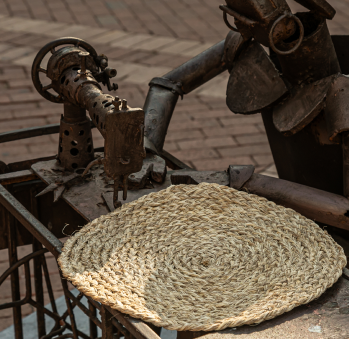
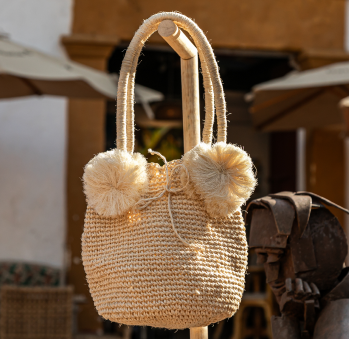
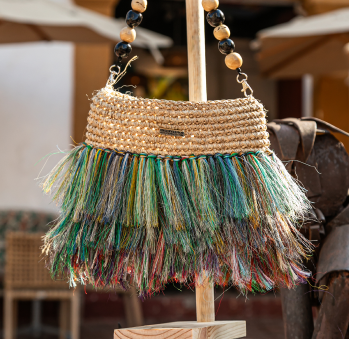
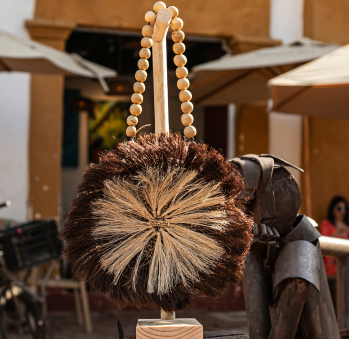
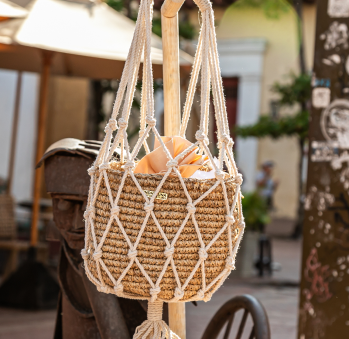
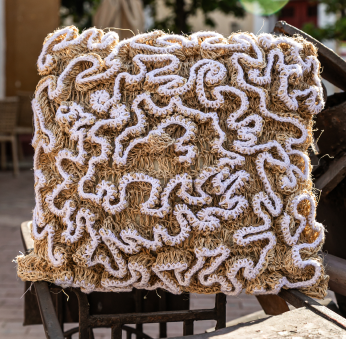
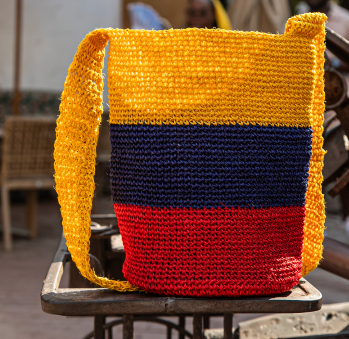









Artisans along the way
Artisans along the way
No puede copiar contenido de esta página

